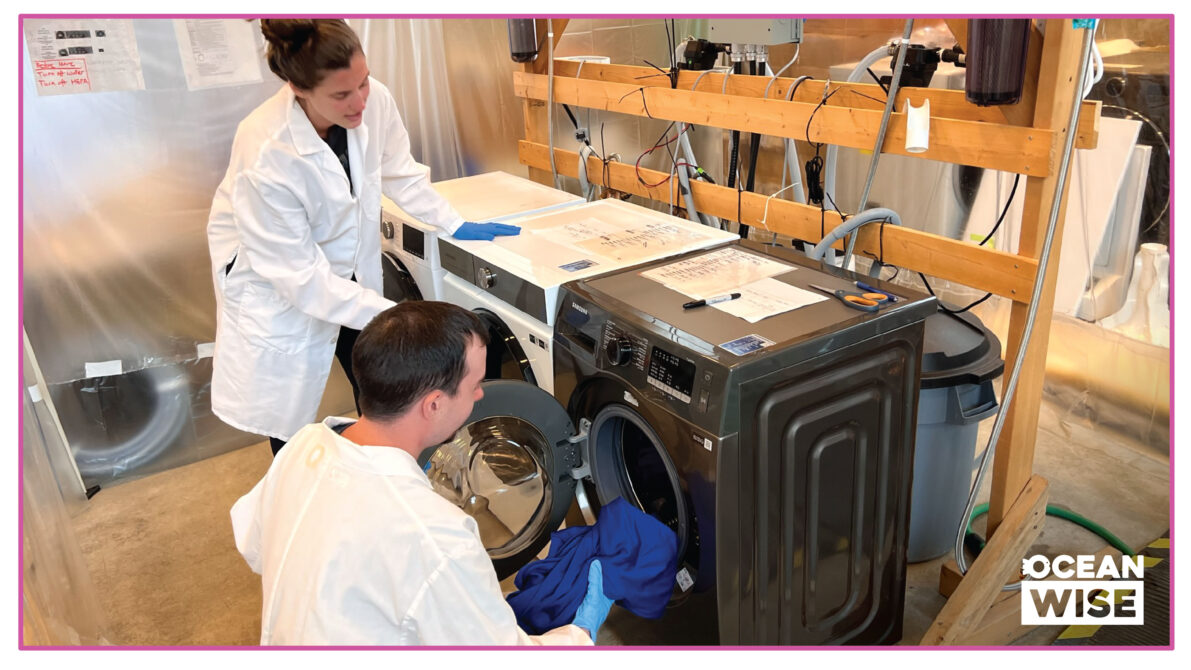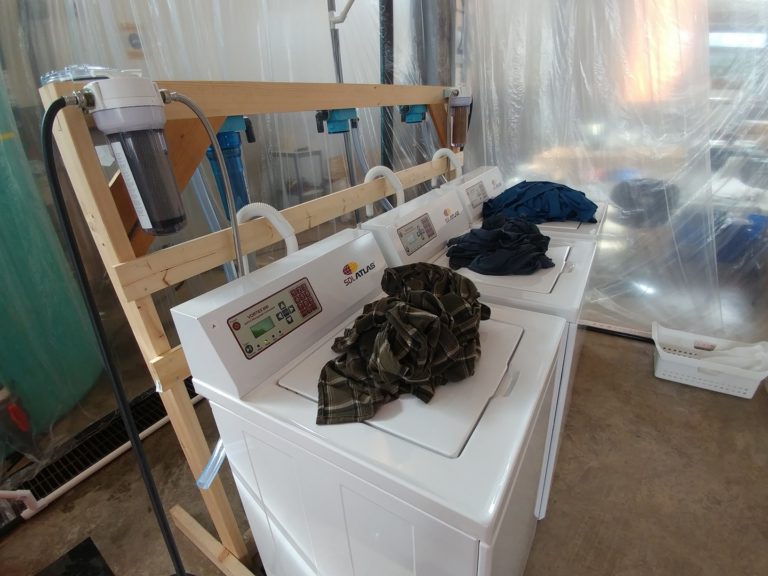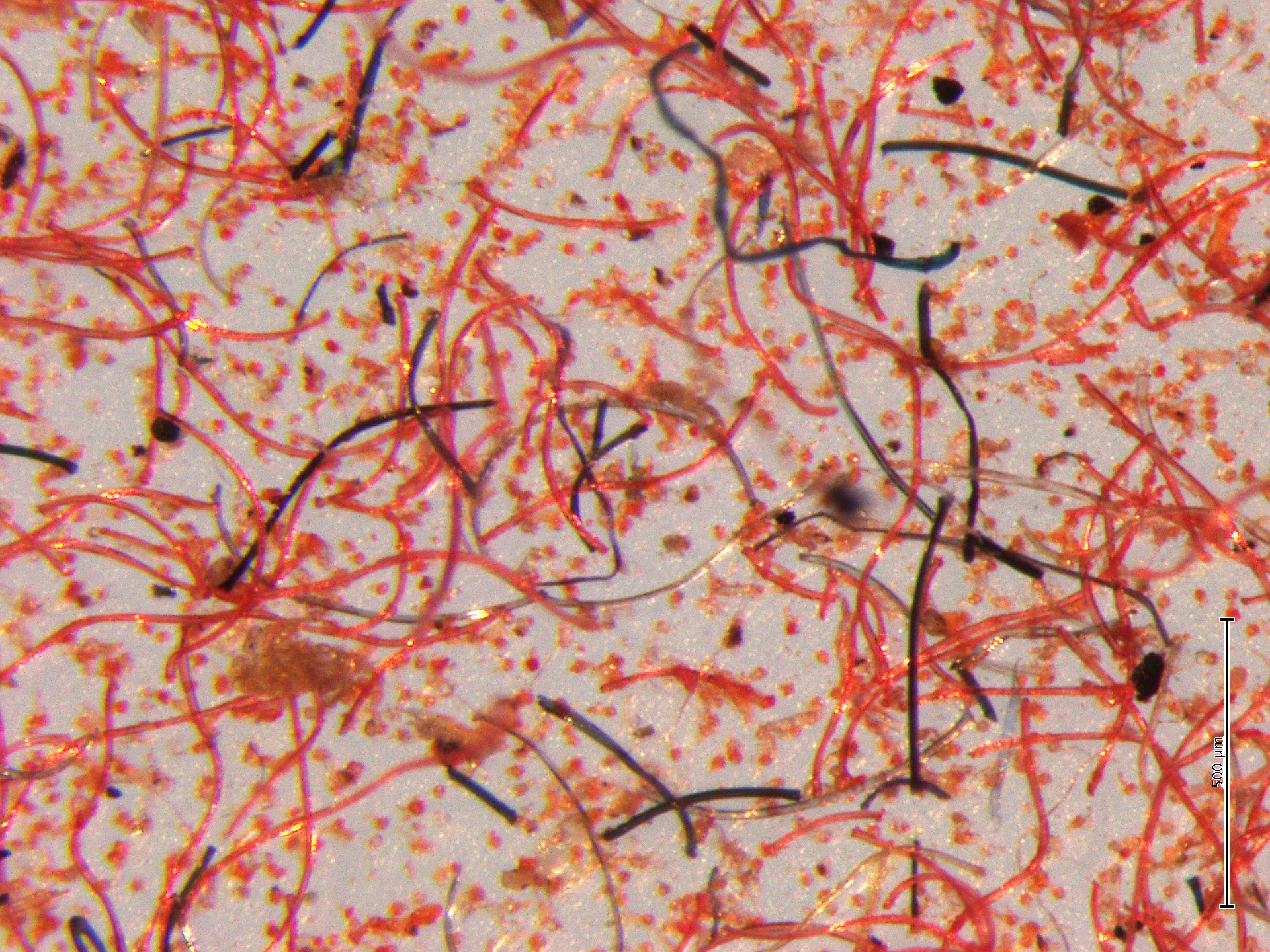
Wash cycle conditions shown to have significant impact on microfiber shedding
Wash cycle conditions shown to have significant impact on microfiber shedding
New study from Ocean Wise finds washing clothes on gentle cycle can reduce microfiber shedding by over 70%.
FOR THE REPORT, CLICK HERE
FOR IMAGES RELATED TO THE REPORT, CLICK Here
Vancouver, B.C. November 15, 2022 – Microfibers, small bits of fibers similar to those found in our clothes, are a type of microplastic found to be pervasive in even the most pristine environments, including the Arctic Ocean. With recent studies finding microplastics in human blood and even breastmilk there is a growing movement for new solutions that can stop their leak into the environment.
Today, Ocean Wise – in partnership with Samsung and Patagonia – published a new report titled Smart Laundry Wash Design Can Reduce Microfiber Shedding which builds on this research by examining the impact wash cycles can have on microfiber shedding. The findings from this research are conclusive: low intensity wash conditions – generally described as ‘gentle’ cycles – can reduce microfiber shedding by approximately 70%.
For this study the Ocean Wise Plastics Lab, a state-of-the-art research laboratory located in Vancouver, BC, tested 21 different wash conditions with 10 different washing machines. Using a methodology based on peer-reviewed scientific studies, Ocean Wise’s team of research scientists conducted over one hundred washes using loads of polyester jerseys representing the weight of a typical laundry load. The tests were conducted in collaboration with Samsung, who provided the washing machines as well as input on testing conditions.
The study’s findings show that there is significant opportunity for washing machine manufacturers to play a leading role in addressing growing global concerns around microplastic pollution as well as identifying several key questions for further research.
Based on the results of this study, Samsung is applying a low shedding wash condition to the newly launched Bespoke AI washing machines. They are now available in the European region, though Samsung plans to gradually expand the launch of the washing machine with the new wash cycle to the global market. This newly designed wash condition has an average shed rate that is 54% lower compared to the baseline.
“It’s our hope that more manufacturers join Samsung in creating an ocean friendly wash cycle that can help to reduce microfiber shedding,” says Charlie Cox, Ocean Wise’s Microplastics Solutions Manager. “A clearly labelled low microfiber cycle on all washing machines can help us achieve the drastic reduction in microfiber shedding that the oceans desperately need.”
Ocean Wise is hoping that this report will encourage more industry players to join Samsung and Patagonia and investigate:
- Which specific part of the wash cycle contributes most to microfiber shedding and can this be adapted or replaced, to reduce shedding?
- What is the microscopic mechanism of microfiber shedding in home laundry, and how is it affected by material and wash cycle design?
- How can wash conditions be designed to minimize the range of environmental impacts, including microfiber shedding as well as water usage, energy efficiency and so on?
- What is the extent of microfiber shedding during tumble drying? How important respectively are air and water transport for textile microfibers?
The study also shows that everyone has an opportunity to become informed and take simple actions to help stop the leak of microfibers into the ocean. In addition to washing gently whenever possible everyone can reduce their microfiber footprint by buying new clothes only when needed, washing only when needed, washing on cold, and using a front-loading washer.
Speaking on the importance of the report, Ocean Wise President and CEO, Lasse Gustavsson, said:
The increasing prevalence of microplastics and microfibers is just one more example of the negative and long-lasting effects plastic has on our environment. Today’s study offers us hope, as it identifies simple solutions that can help to address microfiber shedding.”
On the impact of study’s findings for washing machine manufacturers, Eun-Suk Bang, Head of Washer Technical Expert Lab, Samsung, said:
I’m excited to see how Samsung can lead the way in innovating for positive change in ocean plastic. Our work with Ocean Wise has shown that by incorporating low-shedding cycles we can play an important role in reducing microfiber shedding.
On the impact of study’s findings for clothing manufacturers, Karba, Environmental Researcher, Patagonia, said:
Since 2015, Patagonia has been investing in various research and innovation workstreams, such as Ocean Wise’s Microfiber Partnership to find potential solutions to address microfiber shedding. Through this partnership we have learned that washing machine conditions can significantly reduce microfiber pollution into the environment, which will help us improve the product care information that we provide to our customers.
About Ocean Wise
Ocean Wise is a globally focused conservation organization on a mission to restore and protect our oceans. Through research, education, public engagement, and international collaborations, we empower communities to fight three major ocean challenges: ocean pollution, overfishing and climate change. By equipping and empowering individuals, communities, industries, and governments, we can create a future where people and our oceans can thrive. Ocean Wise is headquartered in Vancouver, British Columbia with staff across Canada, Mexico, and Chile, and operates conservation projects that make national and international impact.
Media contact
Nic Schulz
Posted November 14, 2022 by Nic Schulz








